Wednesday,March 03,2021 /08:00 PM/ By Proshare Research/ Header Image Credit: EcoGraphics
Always expect the unexpected.The oil and gas industry is terrible at predicting anything. Always have aback-up plan. - David Dixon
David Dixon's quotation may be true, but the fact thatthe oil and gas (O&G) industry will undergo a major transition over thenext decade, is not a bullet from nowhere, as crude oil demand dips and gas demandrises. The change in the composition of global energy demand would require acritical review of pricing templates to ensure that the pricing of thedifferent energy sources is fit-for-investment. For example, gas pricing inNigeria until recently has been determined by will buyers and willing sellers,allowing for a price discovery process that is market-led rather thanadministratively determined.
The global march towards a less carbon-toxicenvironment has meant that companies and governments have started the greatmarch towards friendlier power and energy sources such as gas, thereby raisingthe profile of this source of energy in the global economy and productionmatrix.
So far gas has not been trapped in the steely fingersof a cartel and pricing appears to be efficient in a conventional market sense.However, the economics of the gas market could become badly distorted ifgovernments decide to interfere in the market price determination byintroducing a battery of taxes, levies, and charges. The signs of thesepossibilities have started to appear in countries like Nigeria where thePetroleum Product Pricing Regulatory Agency (PPPRA) has introduced anadministrative charge of N1.23k per litre of liquified petroleum gas (LPG).
Analysts have noted that the introduction of anadministrative charge on local gas supply in Nigeria is an unfortunateimposition of fiscal drunkenness on economic sobriety. The major challenge withthe charge is that it creates deadweight economic loss as well as discouragesthe demand and supply of gas, which is an outcome at variance with the federalgovernments proposed decade of gas policy set to increase gas use forcommercial and private automobiles and domestic cooking (see illustrationbelow).
Illustration 1 LPG; AvertingDeadweight Economic Losses
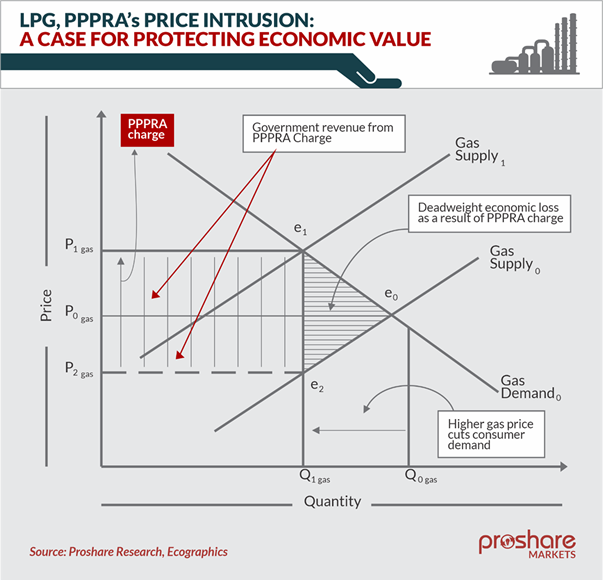
The imposition of charges on gas at a time when gas isbeing encouraged as a friendlier alternative energy source is counterintuitiveand does not internalize the economic benefits from using gas rather than dual purposekerosene (DPK) or local firewood, both of which emit environment damagingcarbon. Economists have noted that charges on gas for obscure administrativereasons shift the marginal cost curve of the product upwards and lead to higherprices and lower consumer demand which combine to reduce the net present value(NPV) of gas use. The added effect would be to discourage investment in anindustry that could grow employment along several value chains. Increasingproduct cost in an inflationary environment (domestic inflation for January2021 was 15.57%) is ill-advised say oil and gas (O&G) economists (seeillustration 2 below).
Illustration 2 LPG: Counting theCost
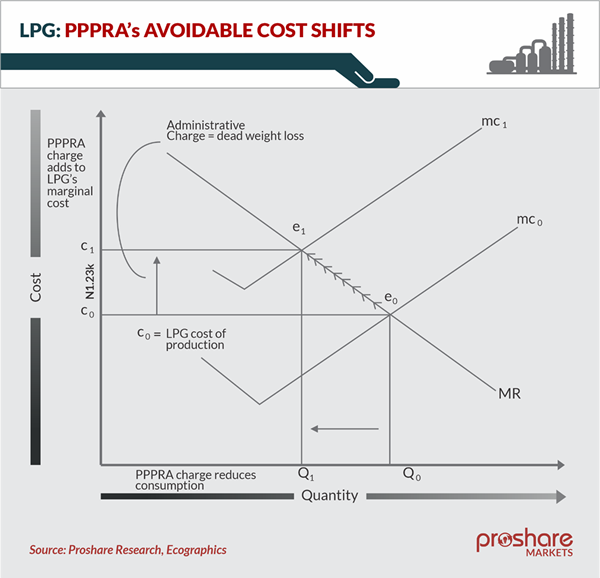
Letting the Market Speak-the Cobra Effect
The best approach to market development would be onethat openly internalizes all costs associated with the sale of gas (LPG andLNG) and taxes chargeable are clear sales taxes rather than levies and chargesthat do not have clear paths of value addition by oversight authorities. Thesecharges typically reflect what economists call the cobraeffect or a situation where a solution breeds worse problemsthan it was meant to solve.
The charging of administrative levies on gas suppliersincreases the burden on consumers and cuts back demand for cooking gas, forexample. This results in consuming alternative sources of energy for cookingwhich could prove to be hazardous to health and a blight on the government'sefforts at containing carbon emission and gradually achieving carbonneutrality. The adverse effect of carbon emission on health would play up inhigher expenditure on public-sponsored healthcare and health infrastructure inaddition to lost manhours resulting from the vulnerability of workers exposedto carbon-tainted workspaces.
The obvious option to dealing with these possible externalities would be for thegovernment to remove administrative charges and create a friendliermarket-determined price for domestic gas.
Moving forward, Cautiously
The gas age is inevitable as global demand for fossilfuel for public cars, factories, public transportation, and domestic cookingbegin to decline and gas becomes the new oil. Nevertheless, fossil fuel willnot disappear down a rabbit hole, the demand for fossil fuel (PMS, DPK, andAGO) will be with us for a while, but growth in demand will be constrained bythe global pivot towards gas. For instance, Britain's carbon emissions are downby 44% while Germany's emissions are down by 29%. A trend showing that majorwestern economies are winding down carbon-emitting fossil fuel as an energysource (see illustration 3 below).
Illustration 3 Oil and Gas in ATime of Transition
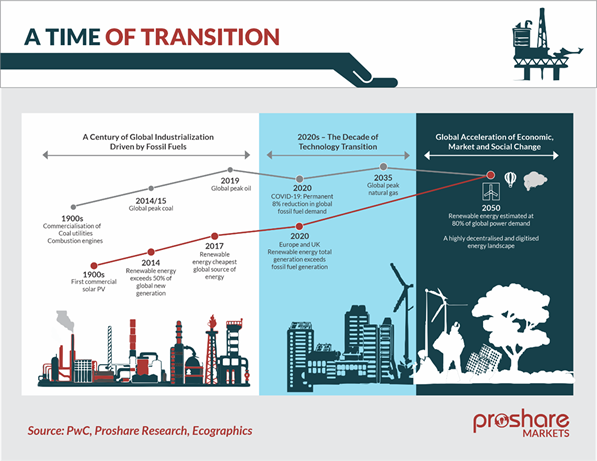
The gas market will expand rapidly over the nextdecade as oil gradually winds down, to integrate the gas future into itsdevelopment plans for industry and domestic users, the pricing of the productmust principally be market-determined, otherwise, price distortion emergingfrom official price intervention would disrupt investment, use, and supply,combined outcomes that would be unsavoury.
Section 1 of this reportintroduces readers to the oil and gas market and explains the dynamics of howthe market works. Pointing the way forward in a gas-dominated world and how theleaning towards gas would shape the emerging global economy and its energyrequirements.
Section 2 of the reportvisits the Petroleum Industry Bill (PIB) and examines in many strong points butdraws attention to a few gaps that could prove knotty in the future, forexample, a large part of the bill fails to make a distinction between thedifferent types of gas: liquified petroleum gas (LPG), liquified natural gas(LNG) and condensed petroleum gas (CNG).While section 167 and 168 of the billrelates to LNG, the wordings are not explicit enough within the sections toclarify the meaning of the generic term 'gas'.
In section 3 the report dissects the import ofderegulation and its impact on the gas market, insisting that for the market toevolve to its full potential the government must avoid the temptation of priceregulation as has been the case with premium motor spirit (PMS). Themarket-distorting impact of price regulation could have severe consequences forinvestment, consumption, and business development.
Consideration of the regulatory mandate of oil and gas(O&G) oversight agencies was made in section 4 where it was arguedthat it was an anomaly to charge an administrative fee for a commodity that hadbeen price-deregulated and no service could arguably be attributed to theadministrative charge of N1.23 per litre by the Petroleum Product PricingRegulatory Agency (PPPRA), a cost which passes on to consumers and results in a 'deadweight' economic/market loss (see illustration 1 above).
Section 5 of the reporttackles issues of pricing of LPG and the need to keep the market both consumerand investor-friendly to enable the country lean successfully into the new gasage without the problems associated with the oil market. Keeping the gasbusiness catholic by avoiding avoidable costs and unfriendly regulatorypractices is critical to sustaining industry efficiency and competitiveness. Thissignificance is underlined in section 6 that makes the case for aninvestor friendly market.
The concluding section of the report, section 7reviews the impact of the global health pandemic on global supply and demand ofgas, both LPG and LNG and looks at the future of the market in a more stableand less fragile global marketplace. The wrap-up section emphasizes that themarket was the best arbiter of price and supply/demand and the less thepotential distortions that could arise from public sector bureaucracy thehealthier the market.
Downloadable Version of Memo tothe Market: PPPRA and the Nigerian Gas Market, Avoiding a Robinhood
1. Full Report: Memo to theMarket: PPPRA and the Nigerian Gas Market, Avoiding a Robinhood - Mar 02, 2021
Related Link
1. NLPGA vPPPRA - An Originating Summons in the Federal High Court of Nigeria Holden at Lagos - Jan,2021
Related Videos
1. Why Full Deregulation is Vital for Nigeria's Oiland Gas Sector
3. Decades of Nigeria's Oil and Gas Sector: WayForward
4. Why Gas Should be Leveraged as A Pivot forDiversifying Nigeria's Revenue - Bambo Ibidapo-Obe
5. How Oil and Gas Zones can Support Nigeria'sEconomic Growth
Related News - PMS Pricing
1. Subsidy Removal andCost-Reflective Tariff: Tough Decisions to be Made
2. Possible Increase inPMS Price, Stakeholders Call for Fixing of the Non-Functional Refineries
3. Uncertainty Over PMSPrice - A Clear Indication Inflation Concerns Could Linger
4. Commencement ofDangote Refinery's Production Would Improve Nigeria's Current Account Balance
5. FG InauguratesTechnical Committee On PMS Pricing Framework
6. FG: Dangote RefineryWill Sell Petrol at International Price
7. Is PMS PriceDeregulation for Real or a Mirage?
8. NLC Communicates theDecision of Its CWC on Hike in PMS Pump Price and Electricity Tariff
9. PPMC IncreasesEx-depot Price of PMS to N151.56 per Litre
10. Policy Directions onPMS, Tariff Hike, Gas and Stamp Duties and Implications on Households
11. PPPRA ReleasesAdvised Price for PMS for the Month of July 2020; Raises Pump Price to N140
12. PPPRA RemovesExisting PMS Price Cap; Commences Market Based Pricing Regime
13. The Conundrum in theRetail Pricing of PMS
14. Petrol: An End tothe Subsidy Regime?
15. The DeregulationFarce; What's The Way Forward?
Related News - PreviousOilprice Intelligence Report
1. Brent Crude Holds Gains Above $65 -OIR 230221
2. Brent Crude Oil Price Falls Back Below $64 - OIR190221
3. How Much Higher Can Oil PricesGo? - OIR 120221
4. Bullish Sentiment Takes OverOil Markets - OIR 090221
5. Brent Crude Surges Towards $60- OIR 050221
6. Oil Prices Hit 1-Year High -OIR 020221
7. Oil Prices Hit 1-Year High -OIR 020221
8. New Vaccine Hopes Boost OilPrices - OIR 260121
9. Oil Price Rally Paused ByChinese COVID Concerns - OIR 260121
10. Energy Shares Plunge as OilRally Halts - OIR 220121
11. Oil Demand Fears Continue toWeigh on Markets - OIR 190121
CMOs/Reports on Oil and Gas Sector
1. Oil and Gas: Working the NewNormal in the Time of a Pandemic
2. The NigerianOil and Gas Industry Update: Urgent Need for Reforms
3. Oil and Gas Update: DownstreamOil and Gas at a Crossroads
4. Nigerian Oil and Gas IndustryUpdate
5. Oil and Gas Sector Records 1Gainer to 7 Losers; Index Dipped By -19.83% YTD
6. NCM2020 (20) - Oil and GasSector - SEPLAT Tops On EPS and PAT Margin As Mobil Tops on ROE
7. Nigerian Oil And Gas Sector- Q32019 Earnings Preview
8. The Oil Market, 2020 BlackSwan, and A Third Virus Wave
Related News on Oil and Gas CompaniesLatest Results
1. CONOIL Declares N1.1bn PAT in Q3 2020 Results,(SP:N19.05k)
2. JAPAULOIL Declares N91m PAT inQ3 2020 Result, (SP:N1.11k)
3. ETERNA Declares N194m PAT in Q32020 Unaudited Results, (SP:N5.00K)
4. Ardova Plc Declares N1.9bn PATin Q3 2020 Result, (SP:N12.65k)
5. SEPLAT Declares N33.7bn Loss inQ3 2020 Results, Proposes $0.05 Interim Dividend; (SP:N420.00k)
6. MRS Declares N881m Loss in Q32020 Results, (SP:N12.45k)
7. TOTAL Declares N500m PAT in Q32020 Results, (SP:N112.20k)
8. RAKUNITY declares N37m Loss inQ3 2020 Unaudited Results, (SP:N0.50k)
9. OANDO Notifies of Delay in thePublication of its Q3 2020 Financials
10. OANDO Declares N13.06bn PAT inQ3 2019 Results (SP:N3.40k)
Related News on PIB
1. NNRCEncourages NASS to Prioritize The PIB
2. InsideNigeria's 2020 Petroleum Industry Bill
3. PIB Will Ensure NigeriansBenefit Optimally from Oil and Gas Resources - Ahmed Lawan
4. PIB: Will the Jinx be Broken This Time Around?
5. Petroleum Industry Bill - Is There Light At TheEnd of The Tunnel?
6. Nigeria to Draft Petroleum Industry Bill fromScratch
7. FG Explains Why Presidential Assent Was WithheldFor Petroleum Industry Governance Bill
8. House of Representatives Passes PetroleumIndustry Governance Bill
9. Senate Passed Petroleum Industry Governance Bill
10. Analysing the Petroleum Industry Bill
11. Petroleum Industry Bill - Senate To ReceiveFinal Report on PIGB April 25
12. Bukola Saraki's Remarks at Petroleum IndustryBill Public Hearing
13. The New Petroleum Industry Bill and Taxation ofPetroleum Products in Nigeria
14. FG may effect changes in Petroleum Industry Bill
15. PIB Will Be An Enabler ForIncreased Investments In The Oil and Gas Sector - Bambo Ibidapo-Obe
16. Power Sector: HowPIB/Deregulation considerations dampens interest in mini refineries
 Lagos, NG • GMT +1
Lagos, NG • GMT +1










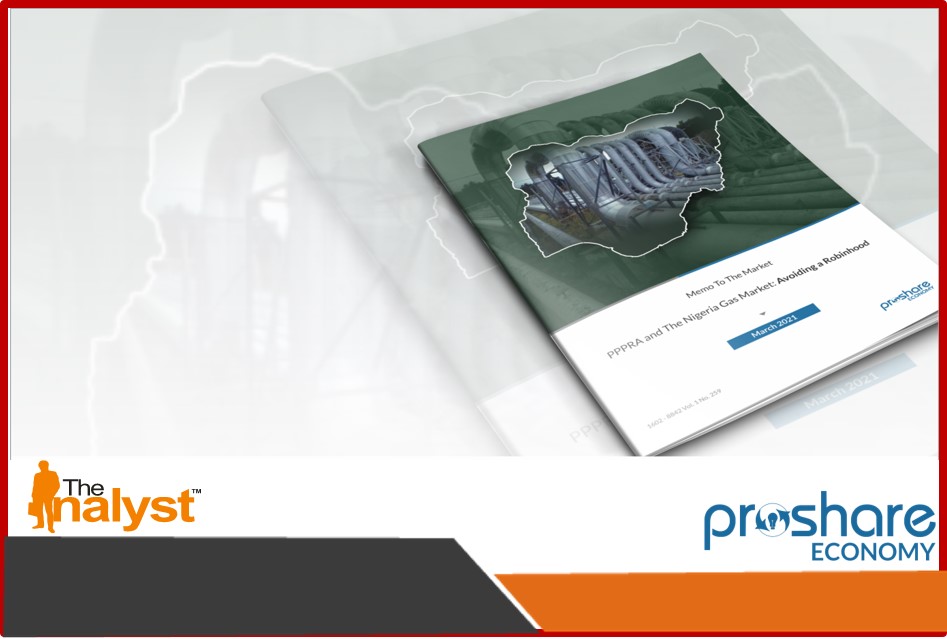
 4139 views
4139 views



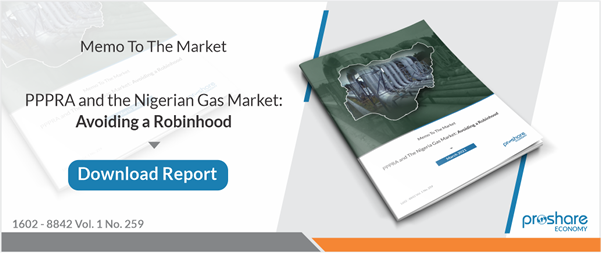


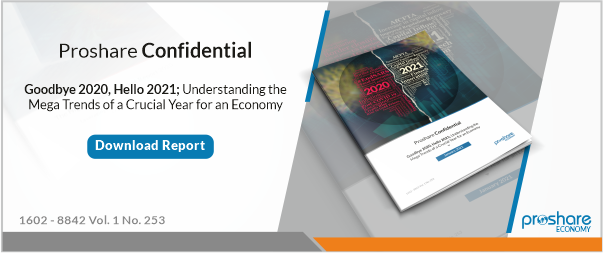

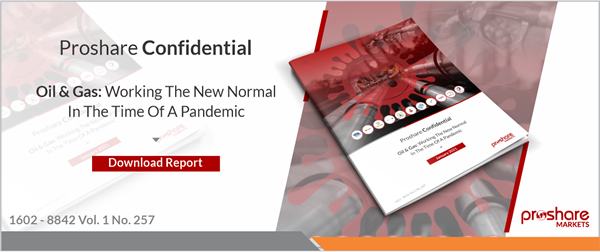
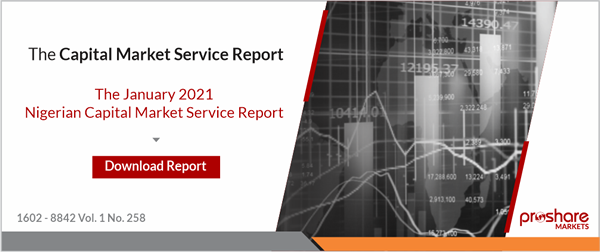
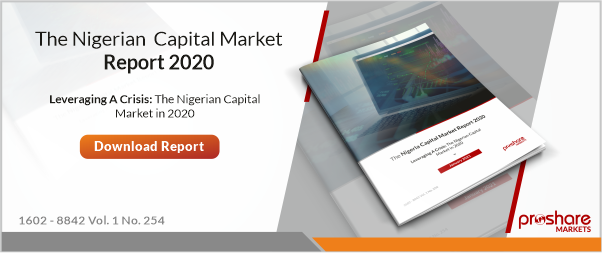








 Sponsored Ad
Sponsored Ad
 Advertise with Us
Advertise with Us









